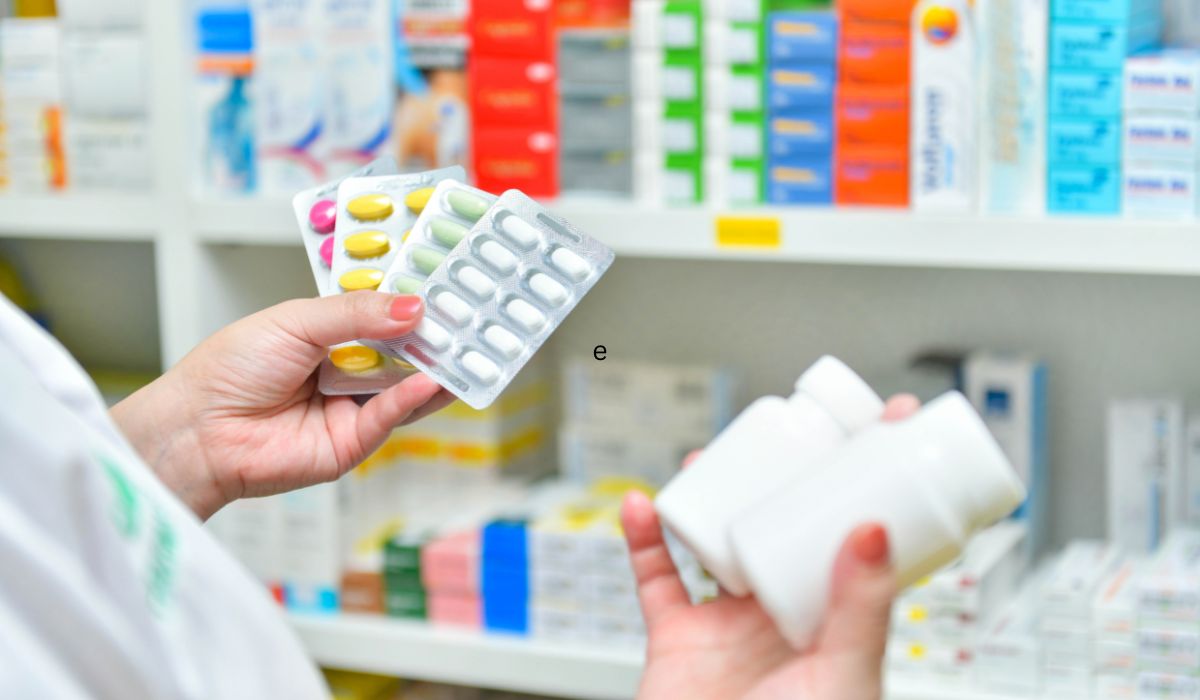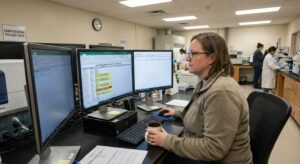Does Dehydroaripiprazole Show Up on Drug Test?
Drug testing is an important part of health care, rehab, and patient safety. Many patients who take medication want to know if certain drugs will show up on a drug test. One common question is: Does dehydroaripiprazole show up on a drug test?
Dehydroaripiprazole is the main active form of aripiprazole, a type of antipsychotic medicine. Doctors often prescribe aripiprazole to help patients with mental health conditions. But when it comes to drug tests, people may worry if it could cause a false positive for substances like phencyclidine, opioid, or benzodiazepine.
At Lynk Diagnostics, a trusted drug testing center for rehab facilities, questions like this are common. This guide explains what dehydroaripiprazole is, how it works in the body, and whether it shows up in urine drug testing.
What Is Dehydroaripiprazole?
Dehydroaripiprazole is a chemical that comes from the breakdown, or metabolism, of aripiprazole. When a patient takes aripiprazole, the liver uses special enzymes to change it into dehydroaripiprazole. Both aripiprazole and dehydroaripiprazole affect the central nervous system and help balance brain chemicals.
- Aripiprazole: Original medication taken by the patient.
- Dehydroaripiprazole: Active form that stays longer in the body.
This process is part of normal pharmacology and helps the medication work better.
Do Standard Drug Tests Look for Dehydroaripiprazole?
Most routine drug screens do not test directly for aripiprazole or dehydroaripiprazole. A normal urinalysis is designed to find controlled substances like:
- Tetrahydrocannabinol (THC) – found in marijuana
- Opioids – such as morphine, codeine, oxycodone, hydrocodone, hydromorphone, and oxymorphone
- Methadone
- Amphetamines – like amphetamine and methamphetamine
- Benzodiazepines – such as diazepam, lorazepam, alprazolam, clonazepam, temazepam, triazolam, oxazepam, and chlordiazepoxide
- Tricyclic antidepressants – including amitriptyline, imipramine, and clomipramine
- Phencyclidine (PCP)
These are common targets in workplace urine drug screens, rehab settings, or health care monitoring.
Can Dehydroaripiprazole Cause a False Positive?
In rare cases, certain medications may cross-react during a screening. This can cause a positive result even if the patient did not use that specific drug.
For example:
- Efavirenz, a medicine for disease treatment, has been linked to false positives for marijuana (tetrahydrocannabinol).
- Selegiline can lead to false positives for amphetamine.
- Doxylamine, an antihistamine, and pseudoephedrine (a cold medicine) may sometimes be confused with methamphetamine.
However, there is little data showing that dehydroaripiprazole causes false positives for substances like opioid, phencyclidine, or benzodiazepine.
If a urine drug screen shows something unexpected, doctors or a physician may order confirmation testing using tandem mass spectrometry or ELISA. These advanced toxicology tools measure the serum or urine more carefully to avoid mistakes.
Why Do Patients Worry About Drug Tests?
Patients in rehab, pain management, or substance abuse programs often take multiple medications. Worrying about how a medicine shows up on a drug test is normal.
Many patients may also be on other treatments, such as:
- Quetiapine or risperidone (other antipsychotics)
- Trazodone or fluoxetine (for depression)
- Lamotrigine or carbamazepine (for mood or seizures)
- Cyclobenzaprine (a muscle relaxant)
- Buspirone or atomoxetine (for anxiety or ADHD)
- Verapamil (for heart health)
- Clomipramine or thioridazine (older antidepressants)
Mixing many medications makes it harder to know what will appear on drug screens.
What Happens During a Urine Drug Test?
A urine test is the most common way to check for drugs. At Lynk Diagnostics, the process usually includes:
- Patient provides a urine sample.
- The sample is tested with a drug screen to check for substances.
- If results look unusual, the lab may run advanced toxicology tests.
Sometimes a patient may test positive after eating something as simple as a poppy seed bagel. This can mimic opiate results because poppy seeds contain small amounts of opium.
Other foods, dietary supplements, or even over-the-counter antihistamine medicines can also confuse a drug test.
Role of Advanced Drug Testing
Modern testing like tandem mass spectrometry gives more accurate information. These methods can separate drugs, check their metabolism, and measure dose levels in blood, serum, or urine.
This is important for:
- Rehab facilities
- Patients in addiction recovery
- Doctors providing pharmacotherapy
- Health care providers checking for adverse effects
When advanced tools are used, there is almost no chance of mixing up dehydroaripiprazole with drugs like methamphetamine, benzodiazepine, or opioid.
Dehydroaripiprazole and Rehab Programs
In rehab, substance abuse monitoring is critical. Many patients come in with addiction to opioid, benzodiazepine, or methamphetamine. These drugs cause serious pain, damage to the nervous system, and long-term disease.
Dehydroaripiprazole is not a controlled substance. It is a normal medicine used for mental health. But patients may still fear a false positive on urine drug screens.
This is why working with a trusted lab like Lynk Diagnostics is important. Their drug tests give reliable information to rehab centers, physicians, and patients.
FAQs About Dehydroaripiprazole and Drug Tests
Does dehydroaripiprazole show up on a urine drug test?
No, standard urine drug screens do not test for dehydroaripiprazole. It is not a controlled substance.
Can aripiprazole or dehydroaripiprazole cause a false positive?
It is rare. Most drug screens will not confuse them with drugs like phencyclidine, opioid, or amphetamine.
What if my test shows positive when I only take medication?
Tell your physician and request a confirmatory toxicology test like tandem mass spectrometry for accurate results.
Can food or supplements affect my drug test?
Yes. Poppy seed foods may look like opiate use. Some dietary supplements, cold medicines, or antihistamines may also cause confusion.
How can I make sure my results are correct?
Use trusted labs like Lynk Diagnostics, follow health care instructions, and always share your full list of medications with your provider.
Final Thoughts
Dehydroaripiprazole comes from the breakdown of aripiprazole, an important antipsychotic medication. While patients may worry about drug tests, this medicine is not usually checked in standard urine drug screens.
False positives are possible with some medications or foods, but advanced methods like tandem mass spectrometry reduce this risk. For patients in rehab or substance abuse programs, working with Lynk Diagnostics ensures accurate, reliable results and better health care outcomes.








